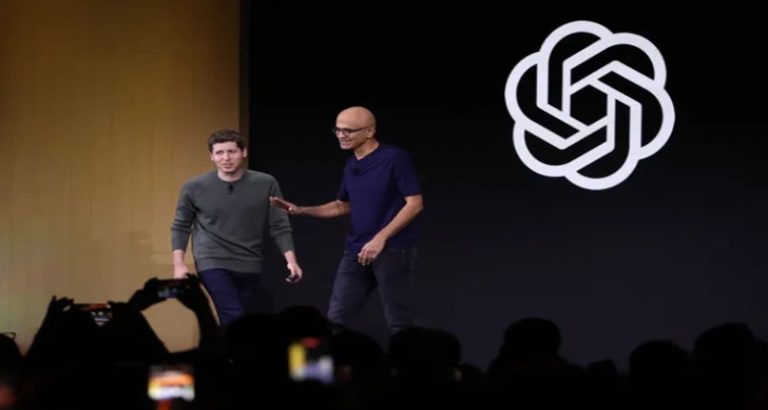
Microsoft is reportedly prepared to walk away from ongoing high-stakes negotiations with OpenAI as both companies struggle to reach consensus on critical terms governing the future of their $13 billion partnership.
The tech giant has signaled that unless OpenAI presents a deal equal or superior to existing arrangements, it is ready to continue operating under its current contract—which secures exclusive access to OpenAI’s models through 2030—without committing to further equity investment or concessions.
This development, first reported by the Financial Times, throws a spotlight on the mounting tensions between the two AI powerhouses, with negotiations stalled over equity stakes, revenue sharing, infrastructure demands, and the strategic direction of the partnership.
Register for Tekedia Mini-MBA edition 19 (Feb 9 – May 2, 2026).
Register for Tekedia AI in Business Masterclass.
Join Tekedia Capital Syndicate and co-invest in great global startups.
Register for Tekedia AI Lab.
A Fractured Alliance
OpenAI is in the midst of a structural transformation, seeking to shift from its original nonprofit status to a for-profit public-benefit corporation. This conversion is central to its goal of unlocking billions in funding, launching an IPO, and maintaining investor confidence. Microsoft’s approval is a legal requirement for this transition to succeed.
However, Microsoft is hesitant to commit to a restructuring that would diminish its control over OpenAI’s most valuable outputs. Sources familiar with the talks say both parties are clashing over how much of OpenAI’s restructured equity Microsoft should receive in exchange for its investment. While figures ranging from 20% to 49% have reportedly been discussed, Microsoft is reluctant to reduce its existing contractual benefits, particularly its share of revenues from OpenAI, currently capped at $92 billion with a 20% cut.
Insiders say OpenAI is now proposing to reduce Microsoft’s revenue share to as little as 10% by 2030, a move the tech giant views as diminishing its return on a massive outlay. Microsoft sources argue that public markets and shareholders care more about monetized access to AI infrastructure than about how much equity the company owns in a third-party vendor like OpenAI.
Strategic Stakes for Both Parties
Despite the tension, Microsoft and OpenAI released a joint statement saying, “We have a long-term, productive partnership that has delivered amazing AI tools for everyone. Talks are ongoing and we are optimistic we will continue to build together for years to come.”
However, the atmosphere behind closed doors tells a different story. According to reports, OpenAI has even contemplated a “nuclear option”—accusing Microsoft of anti-competitive behavior—to pressure the company into loosening its grip on the current partnership terms.
One person close to OpenAI described Microsoft’s negotiation stance as “just making OpenAI sweat,” underscoring the software giant’s leverage in the talks. Another Microsoft insider added, “The status quo is fine with us. We’re happy with the current contract and prepared to run it through until 2030.”
However, for OpenAI, securing this deal is not optional. Several investors in recent financing rounds—most notably SoftBank, which led a $30 billion round—have agreed to terms that require the nonprofit-to-for-profit conversion. Without Microsoft’s consent by the end of 2025, OpenAI risks losing billions in committed capital. SoftBank alone could retract $10 billion if the transition is not completed on time. Though OpenAI’s leadership believes backers will remain on board even in the event of delays, the pressure to deliver is significant.
Diverging Agenda
Microsoft, led by CEO Satya Nadella, has been actively reducing its dependence on OpenAI models, anticipating a future in which foundational AI models become commoditized. Instead of betting solely on OpenAI, Microsoft is integrating multiple AI models into its cloud services. In May 2025, it began offering access to Elon Musk’s xAI Grok model to Azure customers—a move that underscores Microsoft’s pivot toward a multi-model ecosystem.
According to several sources, Microsoft is also becoming less patient with OpenAI CEO Sam Altman’s escalating demands for computing infrastructure. Altman has reportedly pressured Microsoft for faster access to GPUs and expanded server capacity to handle ChatGPT’s soaring user base—now at 500 million weekly active users globally—while also training new models.
The partnership has become particularly strained over infrastructure issues, with OpenAI also exploring alternative cloud partnerships with Oracle, Google Cloud, and SoftBank to diversify its backend operations.
Legal and Regulatory Hurdles
Even if both companies reach a new agreement, it must survive scrutiny from U.S. regulators. The conversion of OpenAI into a for-profit entity is subject to review by attorneys-general in California and Delaware, given its original nonprofit charter. Elon Musk, a former OpenAI board member and current head of xAI, has launched a legal challenge against the transformation, which further complicates the timeline and risks.
Additionally, current contract elements are under renegotiation, including Microsoft’s exclusive right to sell OpenAI’s products through its Azure cloud, its right of first refusal on infrastructure services, and its early access to OpenAI’s intellectual property in the event of a breakthrough in artificial general intelligence (AGI). Reports suggest the AGI clause may be dropped entirely, as it has become a point of contention.



